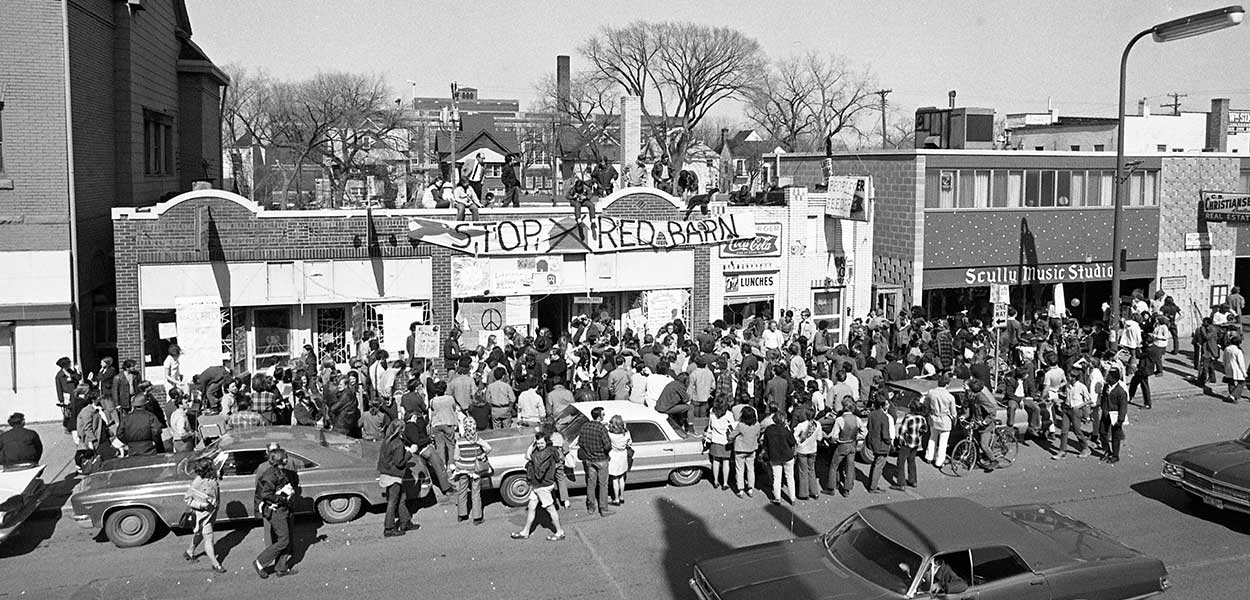Strict conformity of opinion is the enemy of intellectual liberty — and both conservatives and liberals fall into this trap.
By Monte Bute
MINNEAPOLIS STARTRIBUNE–AUGUST 29, 2015
Regardless of one’s belief system, political creed or group affiliation, we are all susceptible to an intellectual short circuit — groupthink. Groupthink seeks conformity by stamping out dissent. The stronger an in-group’s loyalty, Irving Janis writes, “the greater the danger that independent critical thinking will be replaced by groupthink, which is likely to result in irrational and dehumanizing actions directed against outgroups.”
Nothing demonstrates this like presidential elections. Mark Twain’s 19th-century quip remains true today: “Men think they think upon the great political questions, and they do; but they think with their party, not independently; they read its literature, but not that of the other side.”
Devout conservatives religiously digest the Wall Street Journal and the Weekly Standard, and watch Fox News; doctrinaire liberals faithfully consume the New York Times and Talking Points Memo, and watch MSNBC. Few in either camp are ecumenically inclined.
Stereotyping and scapegoating flow from groupthink. Reactionaries pummel the poor, immigrants and women. Progressives torch Wall Street capitalists, fundamentalist Christians and white males. The irony is that while both factions astutely call out their antagonists’ faulty generalizations, each remains oblivious to its own.
What’s the remedy? First, one must recognize having fallen prey to group thinking. This insight often occurs with the disturbing experience of cognitive dissonance — the mental discomfort caused by holding two contradictory ideas at the same time. Perhaps F. Scott Fitzgerald put it best, “The test of a first-rate intelligence is the ability to hold two opposed ideas in the mind at the same time and still retain the ability to function.”
In the last half of the 20th century, the eminent economist Albert Hirschman best exemplified Fitzgerald’s definition of “a first-rate intelligence.” In the midst of the Reagan counterrevolution, liberals sought to grasp the conservative mind. Hirschman, himself a liberal, did not limit his inquiry to the contemporary scene. Instead, in “The Rhetoric of Reaction,” he returns to the French Revolution and examines 200 years of conservative rhetoric opposing social change.
Hirschman discovered three perennial rhetorical strategies pursued by reactionaries.
- The Perversity Thesis— radical social change will result in outcomes that only worsen the condition that progressives seek to alleviate.
- The Futility Thesis— pursuing social transformation is futile because the laws of social order are immutable.
- The Jeopardy Thesis— as desirable as a reform is “in principle,” the practical cost or consequence will endanger previous accomplishments.
Had Hirschman ended his book there, he would have won universal applause from his liberal allies for exposing conservative groupthink. Fortunately, he had a “propensity for self-subversion.” He explained: “Skepticism toward other people’s claims … is, of course, not a particularly noteworthy characteristic. It is, however, more unusual to develop this sort of reaction to one’s own generalizations or theoretical constructs.”
To the chagrin of his liberal colleagues, Hirschman had a moment of self-subversion as he was finishing the book — reactionaries have no monopoly on this sort of intransigent rhetoric. He realized that he and his friends inhabit a parallel universe of groupthink and added a chapter on the symmetrical theses of progressive rhetoric.
- The Desperate Predicament Thesis— the old order is irreparable and a new order must replace it, regardless of possible unintended consequences.
- The History Is on Our Side Thesis— inevitable historical forces, which are futile to oppose, justify progressive action.
- The Imminent Danger Thesis— inaction will result in disastrous consequences.
I contend that the most significant obstacles to independent thought are not the usual suspects, such as governments and corporations. The danger is closer to home. Our friends are often the enemies of our free thought. People suppress contrary perceptions and opinions when they must take a public stance in the presence of fellow group members.
There is one liberty that no group (libertarians included) really wants its members taking to heart — intellectual liberty. Intellectual liberty is not free. On the contrary, freedom of thought is like a sown seed, requiring a citizen to nurture it.
Monte Bute teaches sociology at Metropolitan State University.


